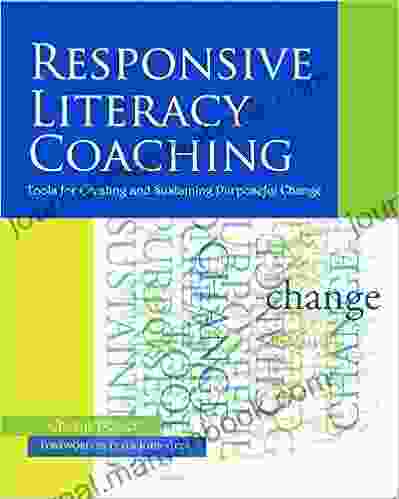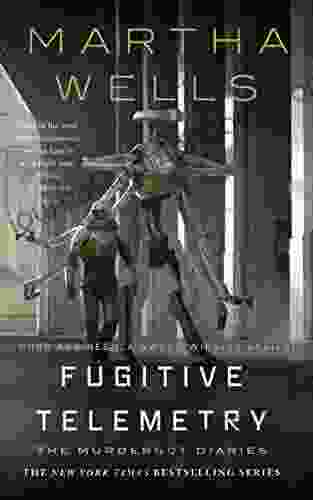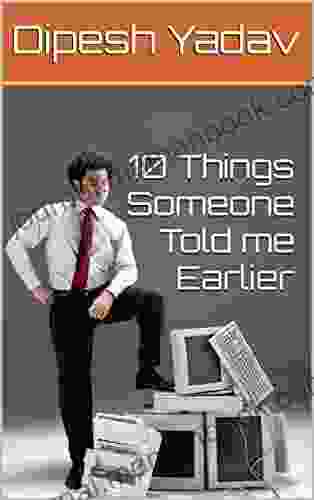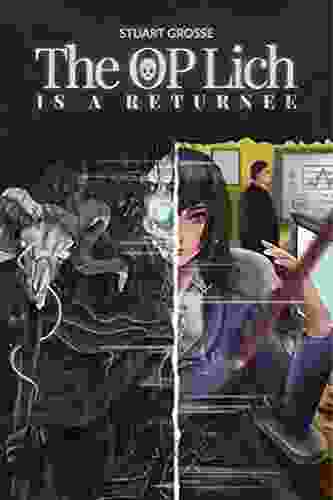The Moral Argument: A Journey Through Historical Perspectives

The Moral Argument, also known as the Teleological Argument, posits that the existence of God can be inferred from the intricate design and purposefulness evident in the natural world. This argument has been advanced by philosophers and theologians throughout history, each offering unique perspectives and interpretations. This article delves into the historical tapestry of the Moral Argument, exploring its origins, evolution, and the influential thinkers who have shaped this enduring philosophical discourse.
4.6 out of 5
| Language | : | English |
| File size | : | 1378 KB |
| Text-to-Speech | : | Enabled |
| Enhanced typesetting | : | Enabled |
| Word Wise | : | Enabled |
| Print length | : | 418 pages |
| Screen Reader | : | Supported |
Ancient Precursors
The seeds of the Moral Argument can be traced back to ancient Greek philosophy. Anaxagoras (c. 500-428 BCE) argued that the cosmos was guided by an organizing intelligence, while Socrates (c. 470-399 BCE) emphasized the inherent goodness and order of the universe. Plato (c. 428-348 BCE) further developed these ideas, proposing that the world was created by a benevolent and purposeful deity.
Aristotle and Teleology
Aristotle (384-322 BCE) refined the Moral Argument by introducing the concept of teleology, or the idea that everything in nature has a purpose. He argued that the natural world exhibited a clear hierarchy of design, with each organism fulfilling a specific role within the grand scheme of things. This teleological perspective laid the foundation for the later formulation of the Moral Argument.
Medieval Influences: Aquinas and the Cosmological Argument
During the Middle Ages, the Moral Argument found fertile ground in the theological writings of Thomas Aquinas (c. 1225-1274). Aquinas synthesized Aristotle's teleological ideas with Christian doctrine, arguing that the existence of God could be proven through five distinct arguments, including the Cosmological Argument. The Cosmological Argument asserted that the orderly and contingent nature of the universe pointed to the existence of a necessary and uncaused first cause, which he identified as God.
The Modern Era: Paley and the Watchmaker Analogy
In the 18th century, the Moral Argument gained renewed prominence through the writings of William Paley (1743-1805). Paley's influential book, "Natural Theology, or Evidences of the Existence and Attributes of the Deity," employed the famous watchmaker analogy. He argued that just as a complex watch implies the existence of a skilled watchmaker, the intricate and purposeful design of the universe pointed to the existence of an intelligent Creator.
Kant and the Moral Law
Immanuel Kant (1724-1804) challenged the Moral Argument's reliance on empirical evidence. While acknowledging the beauty and order of the natural world, he argued that the existence of God could not be proven through reason alone. Instead, Kant emphasized the categorical imperative, a moral law that he believed was inherent within human nature and provided evidence for the existence of a moral Creator.
David Hume's Critique
David Hume (1711-1776) emerged as a vocal critic of the Moral Argument. He argued that the claim of design in nature was based on subjective impressions rather than objective evidence. Hume maintained that the purported order and purposefulness of the universe could simply be a result of the laws of nature, rendering the Moral Argument inconclusive.
The Euthyphro Dilemma: Plato's Philosophical Challenge
Plato's Euthyphro Dilemma raises a fundamental question that continues to vex the Moral Argument. It asks whether something is good because it is commanded by God, or whether God commands it because it is good. If God's commands are arbitrary, then the basis for morality becomes questionable. Conversely, if morality exists independently of God, then the need for a divine Creator is diminished.
Contemporary Perspectives: The Anthropic Principle
In recent decades, the Moral Argument has found new expression in the context of the Anthropic Principle. Proposed by physicists and cosmologists, the Anthropic Principle suggests that the fundamental laws and constants of the universe seem finely tuned to allow for the existence of life. Some proponents of the Anthropic Principle argue that this apparent fine-tuning points to the existence of a benevolent cosmic designer.
The Moral Argument remains a multifaceted and enduring philosophical concept that has sparked debate and reflection for centuries. From its ancient origins to its modern iterations, the argument has undergone significant evolution and refinement. The historical perspectives explored in this article highlight the diverse range of perspectives and arguments that have shaped this profound philosophical debate. While the question of God's existence continues to be a matter of ongoing exploration and conjecture, the Moral Argument serves as a testament to the enduring human quest for meaning and purpose in the vast tapestry of existence.
4.6 out of 5
| Language | : | English |
| File size | : | 1378 KB |
| Text-to-Speech | : | Enabled |
| Enhanced typesetting | : | Enabled |
| Word Wise | : | Enabled |
| Print length | : | 418 pages |
| Screen Reader | : | Supported |
Do you want to contribute by writing guest posts on this blog?
Please contact us and send us a resume of previous articles that you have written.
 Top Book
Top Book Novel
Novel Fiction
Fiction Nonfiction
Nonfiction Literature
Literature Paperback
Paperback Hardcover
Hardcover E-book
E-book Audiobook
Audiobook Bestseller
Bestseller Classic
Classic Mystery
Mystery Thriller
Thriller Romance
Romance Fantasy
Fantasy Science Fiction
Science Fiction Biography
Biography Memoir
Memoir Autobiography
Autobiography Poetry
Poetry Drama
Drama Historical Fiction
Historical Fiction Self-help
Self-help Young Adult
Young Adult Childrens Books
Childrens Books Graphic Novel
Graphic Novel Anthology
Anthology Series
Series Encyclopedia
Encyclopedia Reference
Reference Guidebook
Guidebook Textbook
Textbook Workbook
Workbook Journal
Journal Diary
Diary Manuscript
Manuscript Folio
Folio Pulp Fiction
Pulp Fiction Short Stories
Short Stories Fairy Tales
Fairy Tales Fables
Fables Mythology
Mythology Philosophy
Philosophy Religion
Religion Spirituality
Spirituality Essays
Essays Critique
Critique Commentary
Commentary Glossary
Glossary Bibliography
Bibliography Index
Index Table of Contents
Table of Contents Preface
Preface Introduction
Introduction Foreword
Foreword Afterword
Afterword Appendices
Appendices Annotations
Annotations Footnotes
Footnotes Epilogue
Epilogue Prologue
Prologue Amanda Yates Garcia
Amanda Yates Garcia Kate Avery Ellison
Kate Avery Ellison Pk Davies
Pk Davies Heather Mchugh
Heather Mchugh Christopher C Pollitt
Christopher C Pollitt James Mactavish
James Mactavish Shirley Jackson
Shirley Jackson James Hilton
James Hilton Melverna Mcfarlane
Melverna Mcfarlane Richard Turbet
Richard Turbet Lee Jordan
Lee Jordan Barbara O Neal
Barbara O Neal Johnny Hiland
Johnny Hiland Ava Burton
Ava Burton Alex Hormozi
Alex Hormozi Laurie Zaleski
Laurie Zaleski Hamid Majid Abbasi
Hamid Majid Abbasi David J Teece
David J Teece Thomas Miller
Thomas Miller Michael Connelly
Michael Connelly
Light bulbAdvertise smarter! Our strategic ad space ensures maximum exposure. Reserve your spot today!

 DeShawn PowellThe Extraordinary World of Steampunk LEGO® Guy Himber: An Immersive Journey...
DeShawn PowellThe Extraordinary World of Steampunk LEGO® Guy Himber: An Immersive Journey...
 Banana YoshimotoTools For Creating And Sustaining Purposeful Change: A Comprehensive Guide...
Banana YoshimotoTools For Creating And Sustaining Purposeful Change: A Comprehensive Guide... Henry JamesFollow ·2.2k
Henry JamesFollow ·2.2k Mason PowellFollow ·5.3k
Mason PowellFollow ·5.3k Michael ChabonFollow ·9.2k
Michael ChabonFollow ·9.2k Lucas ReedFollow ·17.4k
Lucas ReedFollow ·17.4k Chase MorrisFollow ·13.7k
Chase MorrisFollow ·13.7k Ruben CoxFollow ·7.1k
Ruben CoxFollow ·7.1k Sammy PowellFollow ·11.3k
Sammy PowellFollow ·11.3k Aubrey BlairFollow ·10.4k
Aubrey BlairFollow ·10.4k

 Alexandre Dumas
Alexandre DumasFugitive Telemetry: Unraveling the Secrets of the...
In the realm of...

 Caleb Carter
Caleb CarterBlack Clover Vol 25: Humans and Evil - A Journey into the...
Unveiling the Sinister Forces Black...

 Israel Bell
Israel BellHow to Make Offers So Good People Feel Stupid Saying No
In today's competitive business environment,...

 Simon Mitchell
Simon MitchellWrath of Hades: The Children of Atlantis
An Epic Tale of...

 Percy Bysshe Shelley
Percy Bysshe ShelleyStrengthen Your Immune System: Fight Off Infections,...
What is the...

 Clark Bell
Clark Bell10 Things I Wish Someone Had Told Me Earlier
As we navigate through life, we accumulate a...
4.6 out of 5
| Language | : | English |
| File size | : | 1378 KB |
| Text-to-Speech | : | Enabled |
| Enhanced typesetting | : | Enabled |
| Word Wise | : | Enabled |
| Print length | : | 418 pages |
| Screen Reader | : | Supported |








